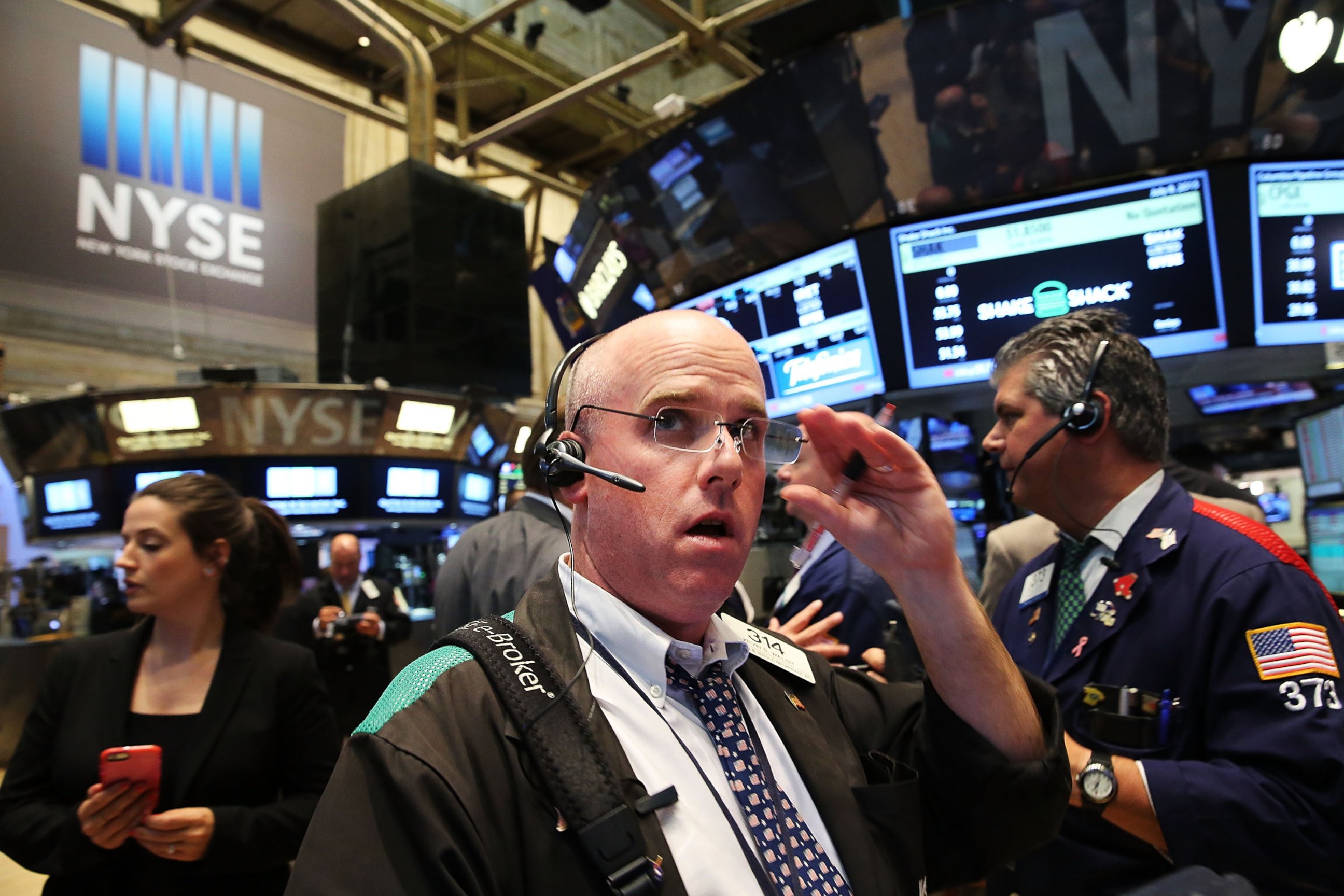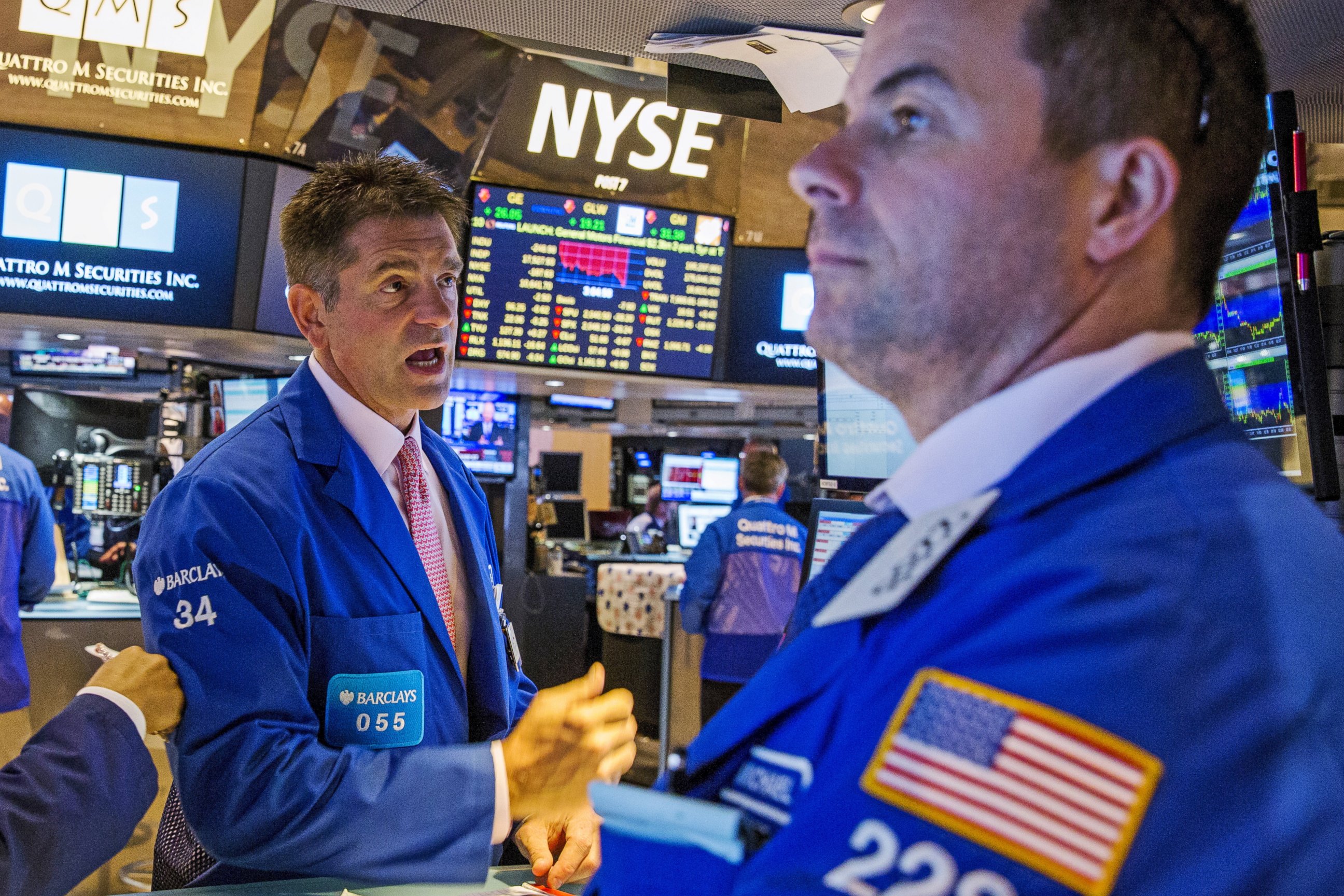What We Know About What Caused NYSE's Trading Halt
The NYSE said the computer glitch was not a cyber-attack. Here's what we know.
— -- The New York Stock Exchange (NYSE) said this morning that all systems are go, but that reassurance isn't easing the minds of those rattled by Wednesday's three-and-a-half hour trading halt.
A software update that was rolled out on Tuesday night contributed to the technical glitch, NYSE said today. The roll-out was in preparation for an "industry test" this Saturday, and it all started when "the initial release was deployed on one trading unit," the exchange said.
"As customers began connecting after 7 a.m. on Wednesday morning, there were communication issues between customer gateways and the trading unit with the new release. It was determined that the NYSE and NYSE MKT customer gateways were not loaded with the proper configuration compatible with the new release," the exchange said today.
The exchange said the "correct version of software" was updated before the market opened at 9:30 a.m. Then there were "communication issues between the gateways and trading units, which began to manifest themselves mid-morning."
"At 11:09 a.m., NYSE issued a Market Status message that a technical issue was being investigated," the exchange said today.
The New York Stock Exchange halted trading at 11:32 a.m. ET on Wednesday, when "customers were still reporting unusual system behavior." The decision to stop trading left investors unable to buy or sell securities. The New York Stock Exchange said its floor trading resumed just after 3:10 p.m. Trading for NYSE MKT, the exchange for small-cap companies, resumed at 3:05 p.m.
Exchange officials blamed the shutdown on Wednesday on a "configuration issue" with its systems and not a "cyber breach," according to an NYSE tweet. The configuration issue pertained to how the exchange's systems interact with one another, a source told ABC News. As of 8:06 a.m. ET this morning, the exchange reported that "all systems are functioning normally."
Security concerns may have prompted a software update, said Sam Ransbotham, information systems professor at Boston College's Carroll School of Management.
"Even if a software update was the direct cause of the glitch, security concerns are the most likely reasons for software updates, particularly those done urgently," he said, adding that software updates are complex, "with incredible tensions in both directions."

"Development and testing takes time that the pace of security attacks do not allow," Ransbotham told ABC News. "Defenders have a Herculean and Sisyphean task in the race with attackers."
Though the glitch has not been linked to a cyber-attack, some experts and law enforcement officials, including FBI Director James Comey, were hesitant to immediately dismiss cyber-attacks as a potential reason for the computer malfunctions that temporarily shut down the NYSE, United Airlines and left the Wall Street Journal's homepage inaccessible for some users Wednesday. Authorities said they are still investigating these glitches.
"Coincidences do happen, but it's the job of the government to verify whether or not it really was a coincidence or whether it was a malicious activity designed to look like a coincidence," said Richard Clarke, former White House adviser on cyber security and current ABC News consultant.

The trading halt caused headaches for high-frequency traders and other professionals, who had to make adjustments if they wanted to trade, say, 10,000 shares of IBM, Charles Jones, a professor at Columbia Business School, said.
Fortunately, most people didn't note a change in their 401(k)s or stock holdings, said Jones, and most investors and retail traders weren't affected by the halted trading either. For example, Jones said he could still log into his brokerage account and trade 100 shares of IBM, an NYSE-listed stock, as usual.
ABC News' Brian Ross, Randy Kreider, Lee Ferran and Josh Haskell contributed to this report.




